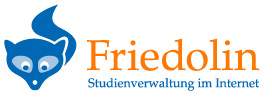| Name des Moduls | [310740] Economics of Innovation II: Industrial Dynamics and Evolution | Bezeichnung des Moduls | MW20.4 |
| Studiengang | [184] - Wirtschaftswissenschaften | ECTS Punkte | 6 |
| Arbeitsaufwand für Selbststudium | 120 | Häufigkeit des Angebotes (Modulturnus) | jedes 2. Semester (ab Sommersemester) |
| Arbeitsaufwand in Präsenzstunden | 60 | Dauer des Moduls | 1 |
| Arbeitsaufwand Summe (Workload) | 180 | ||
| Modul-Verantwortliche/r | Prof. Dr. Uwe Cantner |
| Voraussetzung für die Vergabe von Leistungspunkten (Prüfungsform) | Final exam (ca. 60 %), presentation or take-homes or mid term exams (ca. 40 %). The decision on the chosen form of examination is made at the beginning of the course in consultation with the students, considering the organizational framework conditions. The exact weighting of the individual assessments will be announced at the beginning of the course. Both parts need to be passed individually and the final grade is the weighted sum of individual grades. If students need to repeat the exam, a passed part need not to be retaken. |
| Unterrichtssprache | English |
| Empfohlene bzw. erwartete Vorkenntnisse | Basic knowledge in innovation decisions as taught in MW20.3 |
| Art des Moduls (Pflicht-, Wahlpflicht- oder Wahlmodul) | 149 M.A. Soziologie, 684 M.Sc. Economics, 276 M.Sc. Wirtschaftsmathematik, 050 M.Sc. Geographie: Wahlpflichtmodul |
| Zusammensetzung des Moduls / Lehrformen (V, Ü, S, Praktikum, …) | Lecture (2h per week), Exercise and guided reading (2h per week) |
| Inhalte | This course addresses issues related to the consequences of innovative activities as well as demand pattern for the dynamic pattern of industrial (and service) sectors. Models from (incentive-based) New Industrial Economics as well as models of the (knowledge-based) Industrial Dynamics will be introduced. Based on approaches on entrepreneurship and in contrast to neoclassical or incentive-based ideas, the competence approach of the theory of firms is developed. From this, the consequences for the relationship between market structure and innovation activity as well as for the development of industries and life-cycle features are addressed. Another topic deals with the demand side and diffusion pattern, where again incentive- and knowledge-based theoretical concepts are discussed. |
| Lern- und Qualifikationsziele | Students have a sound understanding of theoretical models of industrial dynamics and industry evolution. They have a good command of the formal tools for modelling and empirical testing of these models. Students are able to present and critically evaluate original research in industrial dynamics and industry evolution. |


